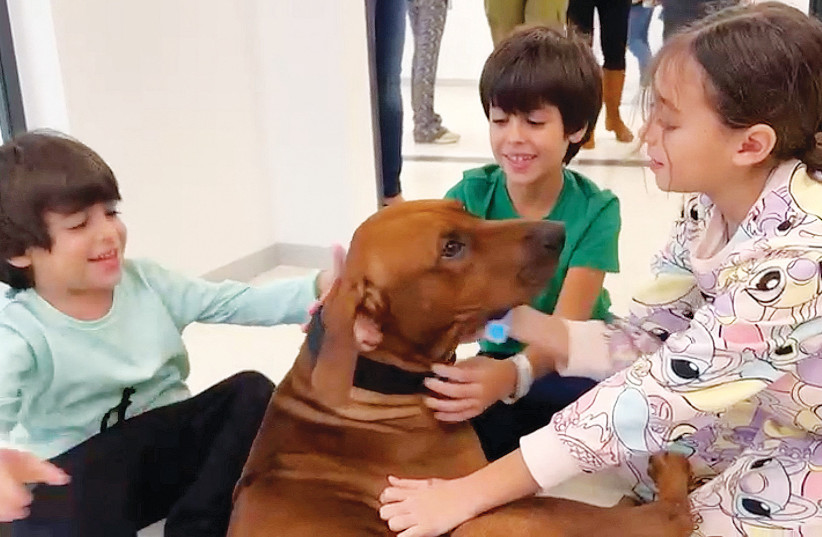Millions of Israelis and many people around the world were moved to tears when 17-year-old Mia Leimberg and her Shi Tzu dog Bella who spent nearly two months in captivity in Gaza after being kidnapped by Hamas terrorists returned home together during the hostages-prisoners swap in early December.
Mia and her family told reporters that hiding the dog in her coat, teaching her to be quiet in underground tunnels and sharing the meager amount of food allotted to her strengthened her during her horrible ordeal.
With only one such case in the world, researchers have not studied the effects of separation of pet owners from their owners in such a crisis situation, but Australians have investigated the profound impact of forced separation between humans and their pets among female victims of domestic violence, natural disasters, and homelessness.
The only case in the world- Mia first to be held in captivity with her pet
This newly published review of 27 years of international research has just been published in the peer-reviewed journal Anthrozoös which studies the relationships between people and animals across areas as varied as anthropology, medicine, psychology, veterinary medicine, and zoology. The study discloses the increased risks to both safety and psychological well-being when people are faced with the threat of forced separation from their pets.
The researchers at James Cook University found increased risks to both safety and psychological well-being when people are faced with the threat of forced separation from their pets. The results, they said, provide important insights towards addressing the challenges arising from domestic violence, homelessness, or natural disasters that can threaten the bond between humans and their pets.

The study was carried out in Australia by James Cook University PhD candidate Jasmine Montgomery and Prof. Janice Lloyd and Prof. Zhanming Liang. “Our results reveal the strong emotional attachment between people and animals may result in vulnerability for both in circumstances where this bond is threatened,” explained Montgomery.
“When people are being forced to separate in the context of a crisis situation, such as natural disaster, homelessness, or domestic violence, it can result in psychological distress and the risk to their health, and well-being and safety are really impacted. “Sadly, the review also confirmed that a common outcome for pets in cases of domestic violence was maltreatment and/or death.”
